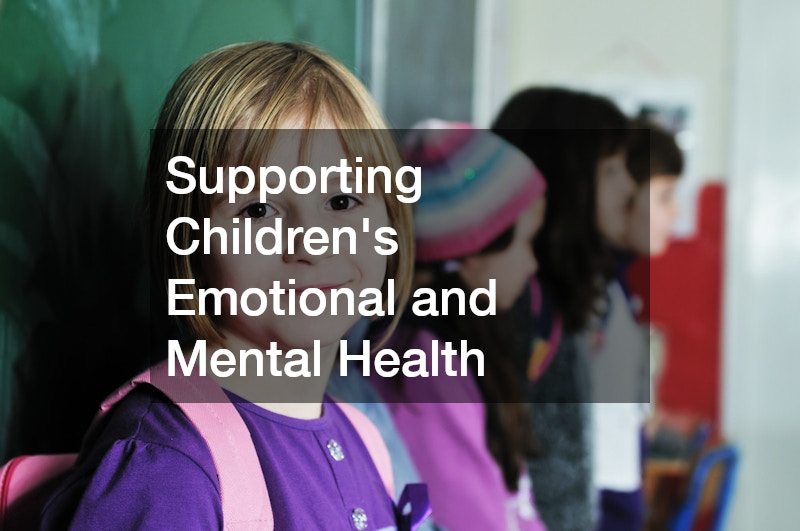Modern Parenting Challenges Every Family Faces
Parenting has never been simple, but modern parenting presents a unique set of challenges that past generations rarely had to face. From digital distractions to academic pressures to shifting family structures, today’s families must adapt quickly in a world that is constantly changing. These challenges can feel overwhelming, especially when we’re trying to support our children’s development and well-being while balancing work, household responsibilities, and the demands of daily life.
As parents, we often feel the weight of guiding our children through circumstances that didn’t exist when we were growing up. Technology shapes how children learn, socialize, and make sense of the world. School expectations have intensified, and mental health needs among children and teens continue to grow. At the same time, family structures are more diverse than ever, and many of us juggle multiple roles while trying to keep our households running smoothly. In the sections that follow, we’ll explore these challenges, how they overlap, and how families can respond with patience, adaptability, and connection.

Adapting to the Digital Age
The digital shift impacts nearly every aspect of a child’s life. Whether through entertainment, education, or social interaction, technology shapes how kids learn and communicate. Our challenge as parents is finding a balance—embracing the benefits while protecting children from the risks.
Screen time and device dependence
Screen time is one of the most common concerns among parents today, and for good reason. Children are exposed to screens at younger ages and for longer periods than ever before. This can impact sleep, attention span, social skills, and even confidence if not monitored carefully. We see families struggle with deciding how much screen time is appropriate and how to enforce boundaries without creating constant conflict. Because screens play such a large role in education and entertainment, reducing dependence requires thoughtful, consistent habits.
Children may experience emotional regulation issues when transitioning away from screens, and many parents face daily battles around device time. It’s not just kids—parents may also rely on screens for convenience or to manage busy schedules. The goal isn’t to remove technology, but to integrate it in healthy, intentional ways.
Online safety and digital literacy
With technology comes exposure to cyberbullying, privacy issues, inappropriate content, and online predators. Teaching children to stay safe online is just as important as teaching them how to stay safe in the real world. We help children understand concepts like password safety, responsible communication, and the importance of reporting concerning behavior.
It’s also essential for kids to develop digital literacy—understanding how to identify misinformation, think critically about what they see, and recognize when online environments are unhealthy. These skills prepare them to function safely and confidently in a digital world.
Managing social media influence
Social media introduces pressures that past generations never experienced. Children see carefully curated glimpses of other people’s lives, often leading to comparison, insecurity, or unrealistic expectations. Many parents worry about how social media affects body image, self-esteem, and mental health.
We must also help children understand that online feedback—likes, comments, shares—is not a measure of self-worth. At the same time, we acknowledge that social media can encourage creativity, friendship, and community when used thoughtfully. The challenge is guiding children through this nuanced reality. For example, older kids may compare their school experiences with peers who attend local private middle schools, which can increase insecurities around academic or social standing.
Balancing Work, Family, and Personal Needs
Parenting demands time, energy, and emotional bandwidth. Many families struggle to balance the demands of work, school, and household responsibilities without feeling stretched too thin.
Managing demanding schedules
Work schedules are often unpredictable, and school activities, appointments, and extracurricular responsibilities fill most afternoons and evenings. Juggling sports, tutoring, family appointments, and homework can create exhausting routines. Even simple tasks, like scheduling an appointment with an adhd doctor or meeting with staff at local child care centers, require time and planning.
This balancing act intensifies when parents commute long distances, work multiple jobs, or handle shift schedules. Families must constantly adjust, communicate, and re-prioritize to avoid burnout.
Maintaining emotional presence
Even when we’re physically present, stress and exhaustion can make emotional presence difficult. Children need engaged connection, not distracted conversations or rushed interactions. When our days are packed and our energy is limited, it becomes harder to give children our full attention.
We often underestimate how much emotional presence shapes children’s sense of security. Small moments of true connection—a conversation at bedtime, shared laughter, or a few minutes of listening without interruptions—can make a tremendous difference.
Prioritizing self-care for parents
It’s easy for parents to neglect personal needs when caring for children, managing a household, and maintaining jobs. But when we become overwhelmed or depleted, the entire family feels the effects. Self-care isn’t indulgent; it’s necessary for emotional stability.
Self-care includes sleep, nutrition, movement, stress management, and meaningful relationships outside of parenting. Even brief moments of quiet, a walk outside, or conversations with supportive friends can restore our energy and patience. It helps to remember that caring for ourselves directly benefits our children.

Supporting Children’s Emotional and Mental Health
Parents today face increasing expectations to understand mental health issues and respond effectively. Many children struggle with anxiety, depression, peer conflicts, social pressure, and self-esteem. Supporting emotional well-being is essential and often requires early intervention.
Increased stress and anxiety in kids
Academic expectations have intensified, and children often feel pressure to excel. Schools compete for high achievement, and students face large workloads, standardized testing, and performance comparisons. Even younger children feel pressure tied to choosing a preschool or adapting to structured learning environments.
Children also absorb stress from family changes, financial concerns, global events, and social dynamics. They may express anxiety through irritability, withdrawal, or physical symptoms like headaches and stomachaches.
Teaching emotional resilience
Emotional resilience helps children manage stress, solve problems, and cope with disappointment. We teach resilience by modeling it—showing how we handle mistakes, regulate emotions, and try again after setbacks. Providing a stable environment, clear expectations, and empathy also strengthens resilience.
Children benefit from learning coping skills such as deep breathing, mindful thinking, positive self-talk, and healthy communication. When we offer a safe place for children to express feelings, we support emotional growth.
Recognizing when to seek professional support
Sometimes children need additional support beyond what families can provide. Counseling, therapy, and specialized services can help children develop coping strategies and address deeper emotional needs. Parents often seek help when behaviors escalate, academic performance declines, or social relationships become strained.
For example, children experiencing emotional or academic struggles may benefit from guidance available at swim schools that emphasize physical activity and social connection, as movement often supports emotional regulation. Similarly, families dealing with separation or conflict may seek support from a family law lawyer who helps navigate legal matters that affect children’s well-being.
Navigating Changing Family Dynamics
Modern families come in many forms, each with unique values and challenges. Whether adjusting to blended households, single-parent living, or multigenerational arrangements, families must find ways to communicate and adapt with compassion.
Blended and co-parenting households
Blended families introduce new routines, relationships, and expectations. Children may need time to adjust to step-parents, step-siblings, or new living arrangements. Co-parenting requires consistency and respectful communication, even when emotions run high.
Clear agreements, reliable routines, and cooperative decision-making help children feel grounded during transitions. Parents who model maturity and empathy give children confidence during periods of change.
Single-parent households
Single parents often manage the responsibilities of two people—financial support, emotional care, transportation, discipline, and school involvement. Time becomes one of the biggest challenges, especially when juggling multiple commitments.
Community support, childcare services, and flexible workplaces can help lighten the load. Creating structured routines also makes daily responsibilities more manageable.
Multigenerational living
Multigenerational households can provide emotional support, childcare assistance, and shared responsibilities. However, differing parenting styles, generational expectations, and privacy concerns can create tension.
Successful multigenerational homes often rely on:
- Clear communication
- Respectful boundaries
- Shared responsibilities
- Mutual understanding
When families work together, this form of living can strengthen bonds and provide stability for children.

Keeping Up With Educational Pressures
Today’s educational expectations place added responsibilities on parents, who must support both academic and emotional growth.
Academic performance concerns
Many parents feel pressure to help children excel in increasingly competitive academic environments. Even young children may encounter structured assessments, advanced curriculum expectations, or competition with peers attending the best Montessori school in their area.
Students may feel pressure to outperform, which can impact self-esteem and emotional well-being. It becomes important for families to balance encouragement with realistic expectations, recognizing that each child develops at a unique pace.
Supporting learning at home
Homework, projects, reading requirements, and test preparation often require regular guidance. Families may struggle to find time for these responsibilities, especially after long workdays.
Parents can support learning by:
- Creating a quiet study space
- Establishing consistent routines
- Communicating with teachers
- Encouraging curiosity
- Breaking tasks into manageable steps
Incorporating learning into daily life—such as reading menus, measuring ingredients, or discussing the news—also strengthens skills.
Adjusting to modern teaching methods
Digital classrooms, project-based learning, and updated curriculum approaches can feel unfamiliar to parents. Schools now use more technology than ever, and families must adapt to online portals, learning apps, digital homework, and remote communication with teachers.
These shifts require patience as families learn alongside their children. When questions arise, reaching out to teachers, school counselors, or education support staff helps clarify expectations and improve outcomes.
Building Strong Family Communication
Open communication supports healthy relationships and emotional well-being. Families who talk openly tend to resolve conflicts more effectively and support one another in meaningful ways.
Encouraging open conversations
Children benefit when they’re encouraged to express their concerns, fears, and hopes. Open conversations help parents understand what children are experiencing, and they help children feel heard and respected.
Creating space for daily check-ins—during meals, bedtime routines, or car rides—allows communication to become a natural part of family life.
Managing conflict respectfully
Conflict is inevitable in any household, but how families handle it makes a significant difference. Teaching respectful communication helps reduce tension and strengthen relationships.
Families can model conflict resolution through:
- Calm discussions
- Active listening
- Fair compromise
- Clear expectations
- Patience
Even when disagreements arise, maintaining respect sets an example that children carry into their own relationships.
Teaching healthy relationship skills
Children learn relationship skills by observing how adults interact. This includes learning empathy, patience, and accountability. When parents model apologies, forgiveness, and healthy boundaries, children gain tools that support lifelong emotional intelligence.

Supporting Healthy Lifestyles
Busy schedules, digital distractions, and academic demands can make it difficult for families to maintain healthy routines. Parenting today often requires deliberate effort to promote physical and emotional well-being.
Promoting physical activity
Regular movement reduces stress, improves mood, and boosts focus. Families can encourage activity through sports, outdoor play, bike rides, and community programs.
For example, some families enroll children in programs at swim schools to build confidence, support fitness, and provide a structured environment for skill development. Activities like swimming encourage discipline, teamwork, and coordination while supporting overall health.
Creating balanced routines
Predictable routines provide structure, reduce anxiety, and help children feel secure. Balanced routines include consistent sleep schedules, nutritious meals, regular homework time, and designated free time.
Families benefit when routines remain flexible enough to adapt to unexpected changes while still offering reliable rhythms that anchor the day.
Reducing overstimulation
Digital noise, packed schedules, and constant exposure to media can overload children’s senses. Overstimulation may lead to irritability, difficulty concentrating, or emotional outbursts.
Parents can reduce overstimulation by:
- Simplifying schedules
- Prioritizing quiet time
- Limiting screen exposure
- Creating peaceful spaces at home
A calm environment supports emotional regulation and improves focus.
Preparing Kids for an Unpredictable Future
The world changes rapidly, and families must prepare children for a future filled with uncertainty. Skills like adaptability, independence, and curiosity help children thrive, regardless of what lies ahead.
Teaching adaptability
Adaptable children can adjust to new situations, handle challenges, and embrace change. We encourage adaptability by exposing children to new experiences, allowing them to solve age-appropriate problems, and supporting self-advocacy in everyday decisions.
This skill becomes especially important when children encounter real-world situations such as visiting a dental office for the first time or learning how to help with simple household maintenance tasks after an appointment with an HVAC company. These everyday experiences build confidence and responsiveness.
Helping kids develop independence
Independence supports responsibility, problem-solving, and confidence. Children benefit from participating in household routines, managing simple tasks, and making choices. When we give children opportunities to contribute meaningfully, they feel valued and capable.
Independence grows through daily experiences such as helping with meals, caring for pets, organizing school supplies, or understanding basic money concepts as they observe adults managing responsibilities like a mortgage loan for the family home.
Encouraging lifelong learning
Curiosity fuels lifelong learning. We support curiosity by encouraging questions, exploring creative projects, visiting cultural institutions, reading together, and exposing children to new ideas. Children who love learning are more adaptable, more confident, and more capable of navigating a changing world.
Programs, hobbies, and enrichment activities help strengthen this love of learning. Even simple activities—science experiments at home, outdoor observations, or creative building—help foster problem-solving and imagination.
Modern parenting brings a wide range of challenges that require patience, adaptability, and thoughtful decision-making. From managing technology to supporting emotional health to balancing work and family responsibilities, every challenge provides an opportunity to strengthen relationships and create healthier family dynamics. While the pressures of modern life can feel heavy at times, families can find balance through communication, structure, and support. Parenting is a continuous learning process, and we’re here to help you move forward with clarity and confidence. If your family needs guidance or support in any of these areas, reach out to a professional so you can walk through these challenges together.




Post Comment